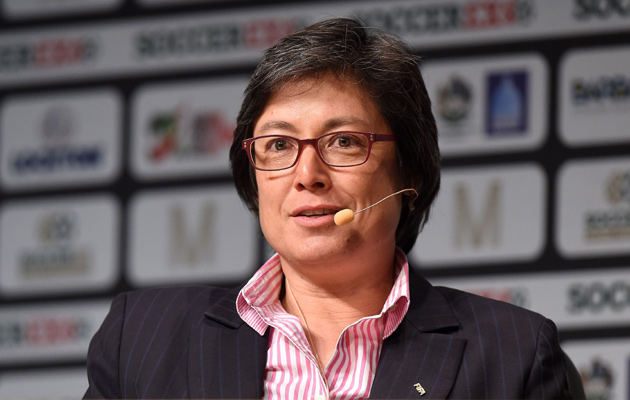The reform panel, chaired by veteran Swiss lawyer Francois Carrard, confirmed over the weekend that the changes it is recommending to the world game will be published after consideration by the executive committee next week.
Carrard & Co are already expected to come up with proposals for a presidential term limit and greater financial transparency.
Issues of governance structure are more politically sensitive. However outside pressure for FIFA to be seen to embracing change has offered the best prospect ever to press for action to address the game’s gender imbalance.
In August the task force for women’s football, which Dodd chairs, called for the reform panel to endorse a 30pc target presence for women on the world federation’s decision-making committees.
Subsequently Dodd, a co-opted member of the FIFA exco, generated a documented proposal (FIFA, Football and Women: Why Reform must Specify Inclusion and Investment) which was submitted to the reform committee last month by New Zealander Sarai Bareman, one of its two delegates from the Oceania confederation.
The reform committee itself falls far below the standard Dodd and Bareman want, with only one women member out of 13 (including chair Carrard): ie seven per cent.
A tidal roll of support from women in public life in general and in sport in particular have rallied to the cause.
Riding the waves have been not only football players and officials but influential figures from other sports such as Billie Jean King, leader of the women’s tennis revolution, and former Olympic swimming champion Donna de Varona who is a senior member of the International Olympic Committee’s Women and Sports Commission.
Dodd insisted: “I’ve only said what everyone knows is true. These words have resonated and the response has been overwhelming. I knew that the players wanted it said, the women in football wanted it said, and many good men wanted it said because they see that the whole game benefits.
“It got bigger than football when Billie Jean King and Donna de Varona spoke out. Then it got bigger than sport when UN Women, Ernst & Young and dozens of Congress members lent support.
“Gender balance is not just a ‘women’s issue’. It’s about good governance, better decisions, and integrity. It’s what modern, forward-thinking institutions do, and that’s the kind of FIFA many women want to be a part of.”
Her comments were endorsed by De Varona, who has an honourable track record promoting the cause of equality of opportunity in sport.
De Varona, who chaired the local organising committee when the United States hosted the 1999 Women’s World Cup, said: “If FIFA is to have any chance at convincing the world that it’s serious about reform and rehabilitating its brand, the organisation needs to embrace new leadership and consider recruiting outside the football fraternity.
“New names and faces need not necessarily be female, but given soccer’s male profile, ensuring 30pc of women will bring gender diversity that is sorely missing.
“Second, of the many sports on the international stage, soccer stands out because of the large gap between popularity (high) and female participation (low). Non-discriminatory funding would ensure the doors are truly open for girls from childhood. This would begin to create a new cultural equilibrium.
“FIFA is at a crossroads. In order to lay claim to all the good the sport offers, this is the time for the leadership to take bold steps.
“To take advantage of this time in history when the crisis facing the organisation provides an opportunity for FIFA to truly become the most progressive, transparent inclusive sports organisation in the world.”
On Friday, December 4, the world at large will discover how the extent or the limits of progressive ambition among FIFA’s executive and reform committees.







